Steven Spielberg“A lot of the films I've made probably could have worked just as well 50 years ago, and that's just because I have a lot of old-fashion values.” source: www.rottentomatoes.com |
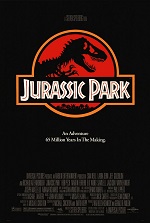 Best Work: Jurassic Park (1993) I covered this pretty extensively yesterday, but the animatronics and CGI in Jurassic Park were both groundbreaking. The story may fall apart in rather large bits (locks were a major plot point) and the acting could get a little hammy at times (I need no argument besides "Jeff Goldblum", but the technical achievements of this movie were light years ahead of anything not involving T-1000 at the time. The main point to be gleaned from the movie is that when animatronics are done well, they age much better than CGI even today. It's easy to downplay now, but the film's first shot of a brachiosaurus was breathtaking and felt like making a discovery. The movie "family tree" of JP is huge, in one way or another ushering in the Star Wars prequels, The Lord of the Rings movies, and the American version of Godzilla. | 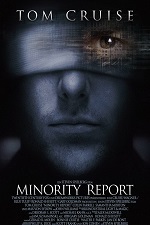 Best Movie: Minority Report (2002) I know, I know, but put down your pitchforks for a second and hear me out. Remove nostalgia (and the handicap for lesser technology it provides) from the equation, knocking out E.T., Close Encounters, and Jaws, then remove historical significance, at least blunting the advantage if Schindler's List and SPR, and then disqualify Indiana Jones for being irrelevant to any of his films' outcomes (hardly an original point to make, but it needs to be said) and I would argue that Minority Report's lead is greater than most would admit. Throw in the under-discussed idea that the fairy tale ending was all in Anderton's head (they mention early in the movie that the prisoners dream) and all its heady ideas of predetermination and fate, and this was an easier choice than you might think. |
“I'd rather direct than produce. Any day. And twice on Sunday.” Spielberg said that and for that reason alone, even though his production work is almost 2.5x the size of his directorial efforts (91 to 37), and they intersect often, I'm writing this Profile with Steven Spielberg the director as the sole focus. Maybe at a later date I'll swing back around to discuss his impact as a producer.
Spielberg's estimated worth of $3.3 billion is a testament to his longevity in the industry, his immense talent, his keen eye for the projects he selects, and his ability to get the most out of his movies' premises (seriously, watch Mac and Me and tell me E.T. couldn't have gone horribly wrong). Despite notable entries in almost every genre of film, and breaking the record for worldwide gross three times, his most lasting impression on the industry may have been necessitating the invention of the PG-13 rating (Temple of Doom is rated PG, but its violence and dark subject matter prompted the MPAA to create the stricter rating).
His directorial efforts have tailed off noticeably in recent years as he continues to shift towards producing, especially in television (the benefit being attracting names like Halle Berry to TV series). In fact, he abandoned his two most recent film projects, Interstellar and American Sniper (the former being taken over Christopher Nolan while the latter is still searching for a director with Clint Eastwood last categorized as "in talks") and put the one before that, Robopocalypse(ignore the corny name, it actually sounded promising), on indefinite hold. Because of this, at least the for director Steven Spielberg, the prospects appear grim. Producing allows him to guide projects only as much as interests him, leaving the detail work in the hands of the directors or other producers. Having given quotes like "[action movies] don't attract me anymore [because I can do them] in my sleep at this point in my career," he looks to be taking advantage of the luxury of choosing only the projects he wants. Lord knows he doesn't need the money.
Spielberg's estimated worth of $3.3 billion is a testament to his longevity in the industry, his immense talent, his keen eye for the projects he selects, and his ability to get the most out of his movies' premises (seriously, watch Mac and Me and tell me E.T. couldn't have gone horribly wrong). Despite notable entries in almost every genre of film, and breaking the record for worldwide gross three times, his most lasting impression on the industry may have been necessitating the invention of the PG-13 rating (Temple of Doom is rated PG, but its violence and dark subject matter prompted the MPAA to create the stricter rating).
His directorial efforts have tailed off noticeably in recent years as he continues to shift towards producing, especially in television (the benefit being attracting names like Halle Berry to TV series). In fact, he abandoned his two most recent film projects, Interstellar and American Sniper (the former being taken over Christopher Nolan while the latter is still searching for a director with Clint Eastwood last categorized as "in talks") and put the one before that, Robopocalypse(ignore the corny name, it actually sounded promising), on indefinite hold. Because of this, at least the for director Steven Spielberg, the prospects appear grim. Producing allows him to guide projects only as much as interests him, leaving the detail work in the hands of the directors or other producers. Having given quotes like "[action movies] don't attract me anymore [because I can do them] in my sleep at this point in my career," he looks to be taking advantage of the luxury of choosing only the projects he wants. Lord knows he doesn't need the money.
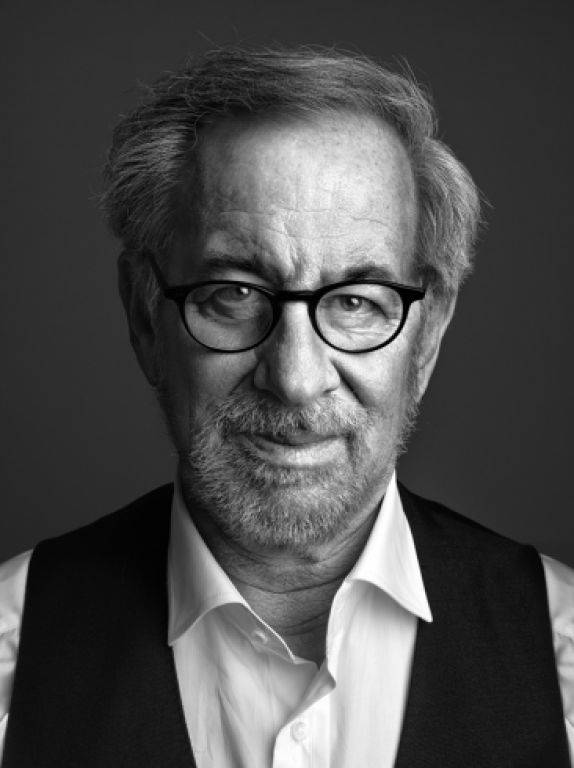




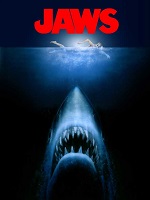
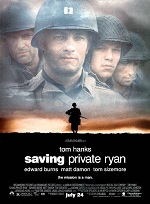
 RSS Feed
RSS Feed